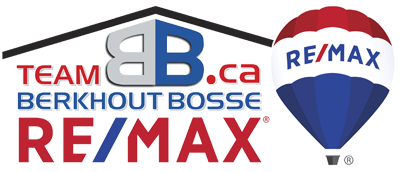When you buy a condominium from plans that won’t be built for a few years, the developer has to give you a list of important documents when you sign the sale agreement. These include the rules that will govern the condominium and a budget for the first year, so you can figure out in advance what you will pay for common expenses.
You have 10 days from the date the developer gives you that information to change your mind. If you do not cancel, then it is a firm deal.
The lawsuits surrounding the new Trump Tower in Toronto illustrate what can happen. Some buyers of the luxury hotel-condo units are trying to get out of deals in some cases signed seven years ago.
They are claiming that maintenance fees, property taxes and other incidentals on the project’s 276 hotel-condo units have skyrocketed from earlier projections. The developer is countersuing, claiming it is a case of buyers’ remorse.
The situation demonstrates the need to scrutinize condominium agreements before signing, because trying to get out of deals later can prove extremely expensive. Although the Trump hotel/complex is different than most residential condominiums, there are still many buildings that have business units on the main floor, so proper inquiries need to be made in advance.
Here are the questions you need answered during that ten day period.
What additional charges will I pay on closing?
Tarion Warranty Corp. which offers consumers warranties on new homes, requires developers to indicate in the purchase agreement, all additional charges you may have to pay on closing. These are either dollar amounts, such as the Tarion enrolment fee, or things like development charges, which may not be known before the condo is built.
In my experience, these charges can add between 1 and 2 per cent over and above your purchase price. The best way for buyers to protect themselves is to negotiate a cap on these expenses right away, so that there is a maximum that can be charged on closing.
What are the rules regarding pets and visitor parking?
Some buildings may provide parking for visitors or charge them for it, others may not. Some allow pets up to a certain weight; others forbid all pets. There will probably be restrictions on attaching anything to or trying to enclose your balcony or patio. You probably will not be able to change the flooring, remove a wall, change the plumbing fixtures or install appliances without the permission of the Board.
Can the developer decide not to build?
Most agreements contain something called an economic viability date. This means that if the developer does not pre-sell enough units, they can just decide to cancel the project and refund your deposit. Buyers are not entitled to any damages. Check this date immediately, and ask whether the developer has the right to extend it.
What is included in common expenses?
Many buyers believe all expenses will be covered by a common payment each month. This is not true. Some buildings may require buyers to pay for and maintain their own HVAC or hydro. Cable will also be extra. Other condos may even require you to maintain your exterior garden or patio as well. This is typically found in “freehold” townhouse projects.
What if there are business units on the main floor?
Make sure that any commercial unit pays utilities separately, since businesses typically use more water and hydro than a regular unit. Imaging if you have a Tim Hortons on your ground level. Very convenient, but it could mean you are subsidizing their utility costs.
Is the common expense payment guaranteed?
The developer’s budget should indicate what you should expect to pay in the first year. However, if construction is delayed, there is usually a clause that the budget will increase by, on average, an additional 4 per cent per year. This means your expenses also will rise. In addition, the developer only guarantees your common expenses in your first year of ownership. If there is any increase after the first year, you are on your own.
Based on what I have heard from condominium specialists, it is not uncommon for the common expenses to rise almost 30 per cent in the first three years of ownership in a new condo building. This could include leasing contracts for building equipment or systems that do not take effect until the second year, for example when the furnace is not owned. This also includes the fact that, while the law requires a 10 per cent reserve fund from day one, this is usually not enough.
If you can just barely afford this condo based on payments that you are being promised today, you may have serious affordability problems later.
Ask the right questions before you buy a new condominium, so that you do not have issues later.
Related: Selling a condo? Beware the taxman
Mark Weisleder is a Toronto real estate lawyer. Contact him at mark@markweisleder.com
Hopefully we will soon be seeing more condominium projects here in Niagara. There are lots of lessons to be learned from real estate experiences in other areas. There are lots of interesting parallels here to the challenges faced during the sales process at Welland's most recent condominium project.






